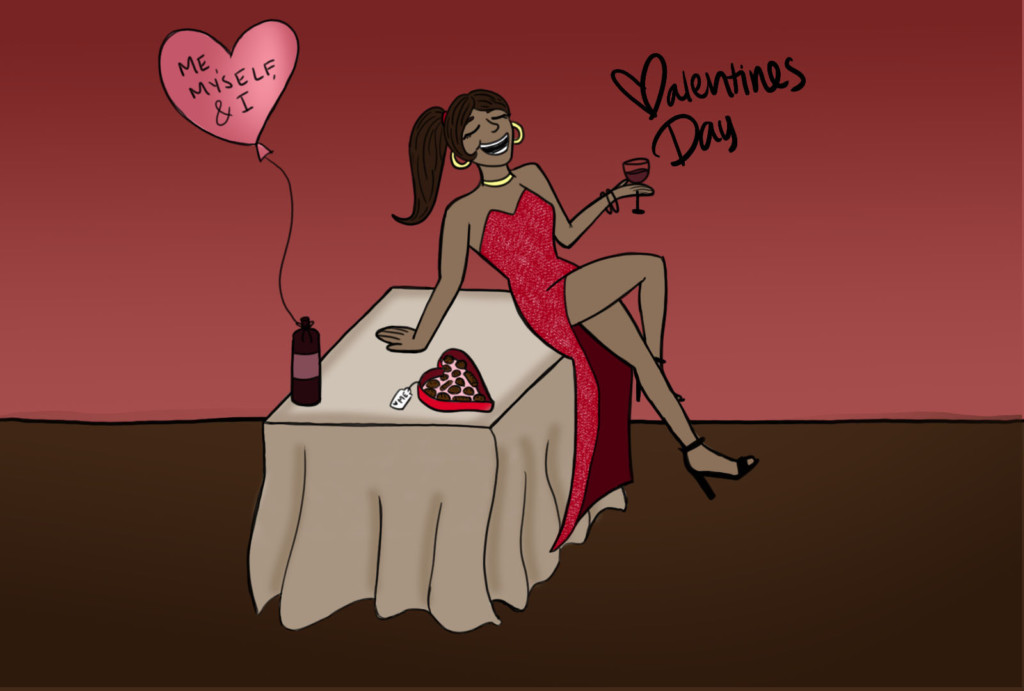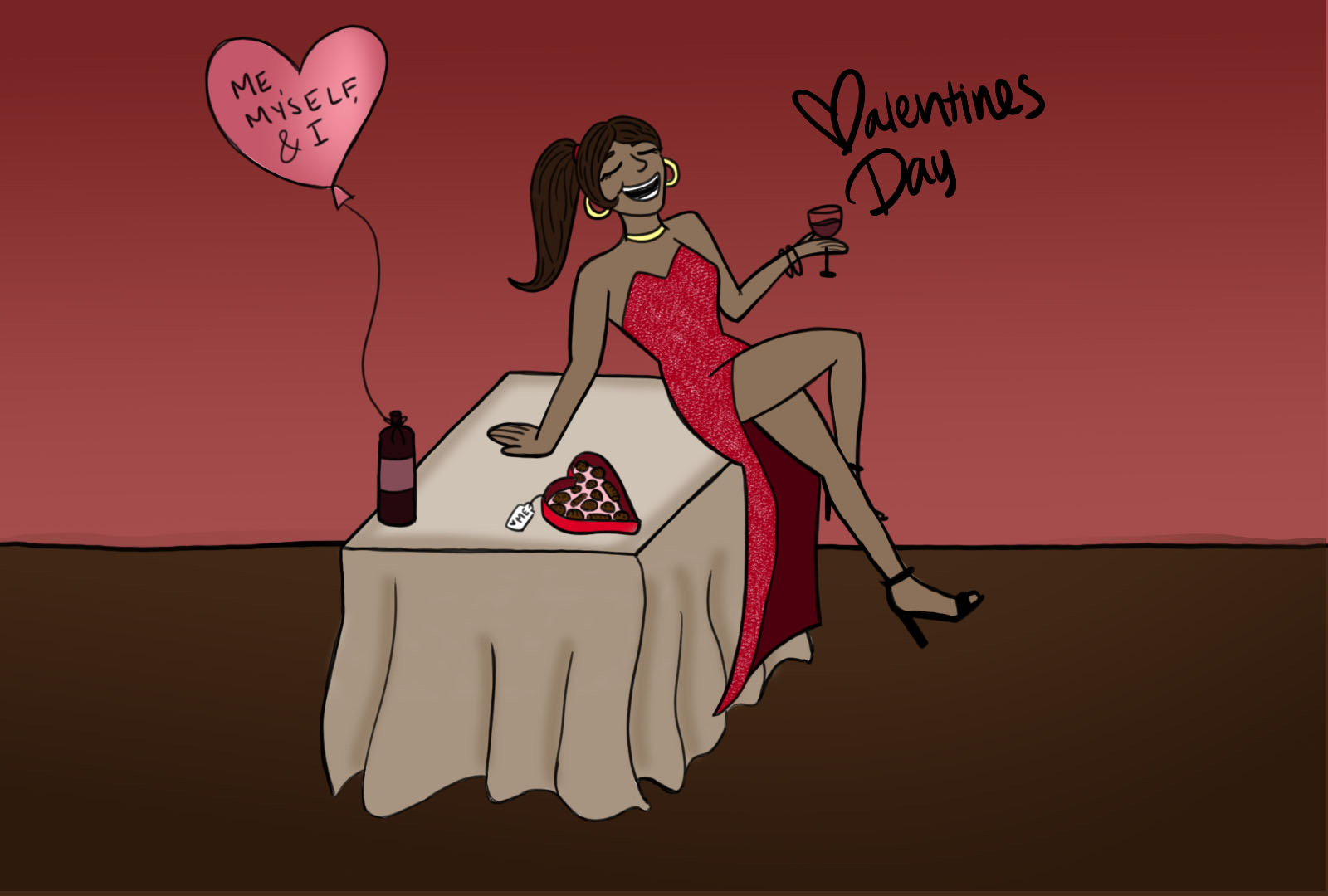Ah, Valentine’s Day — where the sickeningly sweet smell of chocolate fills the air, and it seems like you can’t even turn a corner without seeing some egregious display of love. For those of you in a relationship, this day is one of joy, when gifts are exchanged between loving partners and you share the company of the one you love most in the world. If you’re not, you may find yourself agreeing with my opening line.
Between advertising, media, and sometimes even our friends, it seems like love is being shoved in our faces. I know how it feels — none of my past relationships have ever made it to Valentine’s Day, so I’ve always felt left out. Despite that, I still love Valentine’s Day, even though this year continues my long-standing streak of not being in a relationship on the holiday.
To understand how we might begin to love this holiday, I think we need to understand why we single people hate it to begin with. It’s easy to feel excluded, partially because of the widespread marketing of the holiday. Though Valentine’s Day wasn’t always the depressing consumeristic holiday it is now, as time has gone on, it seems like I can’t even pull up my phone around this time without seeing an ad for some sort of Valentine’s Day sale.
But I don’t think this alone explains why we might feel excluded from Valentine’s Day — it’s also because we have an incomplete idea of love. When we think of love, we’re inclined to think of primarily two types of love: romantic love and familial love. We aptly describe the affection and compassion we feel for our romantic partners and family members as love, but there’s hesitancy in using it beyond these applications.
Think of the last time you called your mom on the phone — did you tell her you loved her before hanging up? I’d say it’s fairly common to do so. But what about the last time you were on a call with a close friend? I’m not saying that no one does this, but it seems much less common to express love to close ones outside romance and family. And this is the greater reason I believe we feel excluded from Valentine’s Day — because the everyday use of love in the English language and western culture is by definition one that is exclusive.
This is not the universal conception of love, though. The ancient Greeks had eight separate words for different types of love, including words describing the love of all people, playful love, and even love for the self. If Valentine’s Day is a day about the celebration of love, it shouldn’t be just confined to one narrow view of love. For example, you’ve likely heard of Galentine’s or Palentine’s Day. Expanding our definition of love is integral to giving everyone the ability to enhance their Valentine’s Day experience.
When I was talking to a few friends about their Valentine’s Day plans this year, one friend said she had three Valentines this year — “me, myself, and I.” Despite her corniness, she has a point. Instead of letting the day be a reminder of not having a significant other, it’s better to treat yourself and practice self-love, which may be the most important and one of the least practiced types of love there is. Love should be practiced and celebrated as the close bonds and affection we feel for all people we care about, including reimagining love to include ourselves as people who can be loved by us.
So what am I telling you to do exactly? Instead of moping around this holiday forlorn about not being in a relationship, remember you still have love. Go buy your friends and family some chocolate or a Spongebob Valentine’s Day card like it’s second grade. Tell those you love how much you love them and why you appreciate them, almost like it’s a sequel to Thanksgiving. And above all, remind yourself that you’re worthy of love on this day, no matter what your relationship status is. Valentine’s Day is my favorite holiday, because I love love, and I hope that in reading this article, you can start to reimagine the holiday so that you might love it too.


